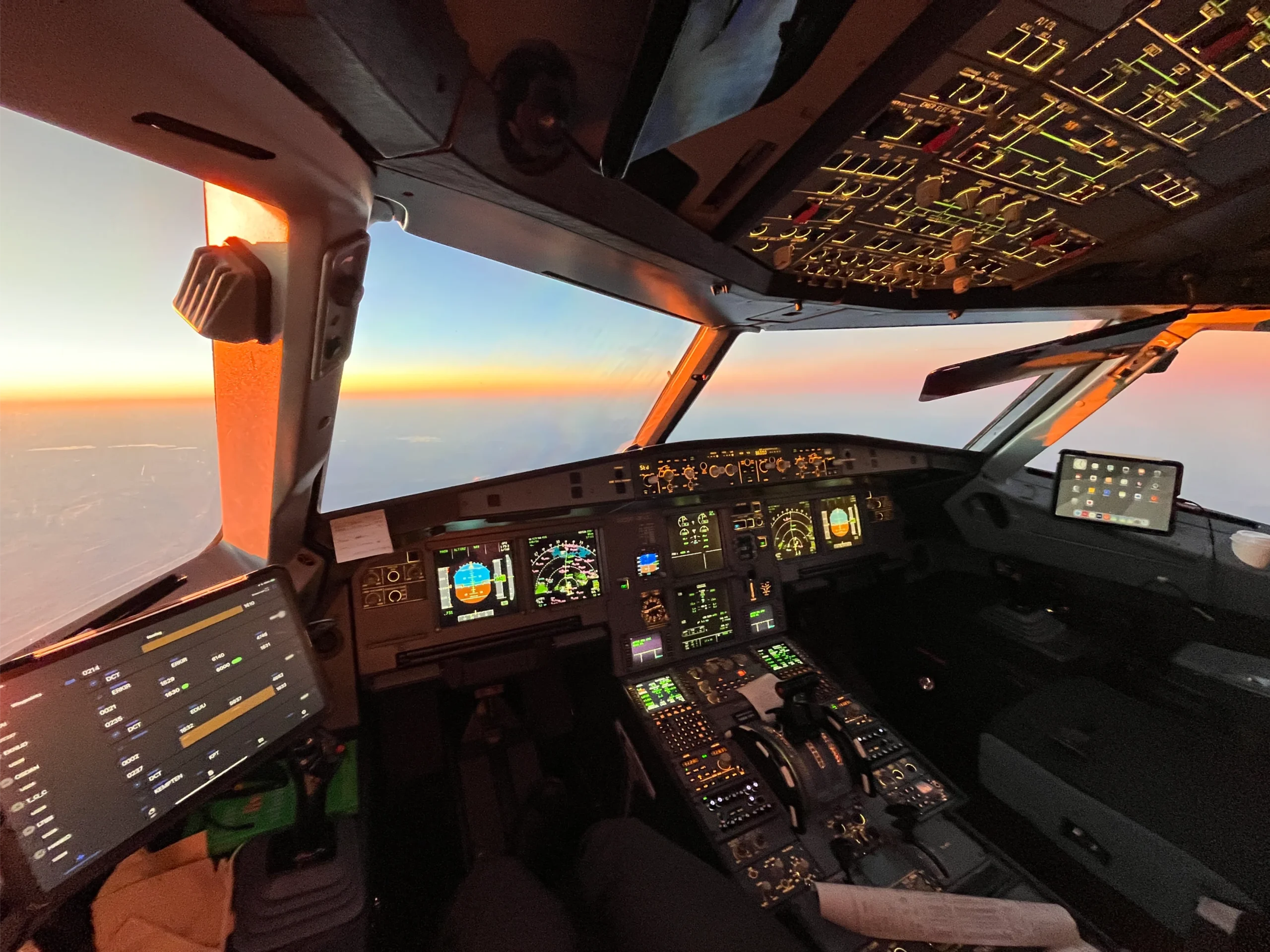
How to Become an Airline Pilot in 2026 (Updated Guide)
Learn how to become an airline pilot in 2026 with this updated guide. Training routes, costs, MPL vs ATPL, funding options, and airline advice.
‘The role of a modern day airline pilot has evolved into a recipe for a mental health disaster, the consequences of which could be catastrophic’
As an airline Captain with 10 years of flying experience and a strong personal interest in psychology & well-being, I’d like to take a deep dive into pilots’ mental health and share some truths the airline industry may rather keep under wraps.
I’ve decided to put this article together because I can see first-hand that the industry I’ve spent the last decade of my life in is heading in an unfavourable and dangerous direction. Pilots’ mental health is a topic that not only affects pilots but also has the potential to affect hundreds of millions of passengers every day around the world. Whilst other industries have fully woken up to the mental health wave, the airline industry has not.
My aim here is to lift a veil over what life as a modern-day airline pilot really consists of, and take a comprehensive look at each part of the role that I believe has a substantial impact on the mental well-being of a pilot. Everything I’ve written is backed up by science and data, which is linked throughout. I’m hoping this article can play a tiny part in driving the airline industry towards a safer, more sustainable future.
In the last decade, pilots’ mental health has occasionally received media coverage; unfortunately, it’s usually for events that have had disastrous consequences. Each time, the airline industry tends to keep putting a plaster over the metaphorical broken leg when these events occur.
The 2015 Germanwings incident, in which a pilot with a history of depression deliberately crashed his aircraft into the French Alps, killing 150 people, put a public rupture in James Butcher’s widespread but clearly inaccurate belief that “Airline pilots are likely to be among the most reliable and psychologically problem-free populations”.
The industry’s knee-jerk reaction to this incident was once again a plaster. New temporary rules were implemented. There was an immediate requirement created to have two crew in the flight deck at all times so one pilot couldn’t commit suicide and take everyone else down with them whilst the other was out for a bathroom break. This quite literally meant a cabin crew member would stand in the flight deck behind the pilot (in what felt like a babysitting scenario) until the other pilot returned. They also made new entrant pilots take very basic psych evaluations to check they weren’t psychopathic.
What they didn’t do was anything to address the fact that the pilot role itself contains many significant contributory factors that are extremely detrimental to mental well-being. As time goes on & the role continues to evolve, these factors are becoming increasingly impactful on the pilot workforce.
A high level overview of recent studies into pilots’ mental health further disproves Butchers belief, still held by many;
A 2012 study of over 700 current airline pilots found that 54% of respondents reported suffering feelings of being depressed or anxious, and a whopping 78% reported suffering feelings of being burnt-out or exhausted.
In 2016, a Harvard University study of over 1,800 pilots found 12% displayed symptoms that met the threshold for clinical depression, or a major depressive disorder, within the previous 2 weeks! Over 4% reported had suicidal thoughts within the same period.
A major catalyst in this issue is that pilots are conflicted about seeking help due to the risk of losing their medical licence and therefore career, with nearly 60% of pilots in this study avoiding seeking proper help when mental health issues arise, due to these fears.
In 2023, a US-based pilot had a mental breakdown whilst on a flight deck jump seat, where he tried to turn off the engines whilst mid-flight. He’s since openly admitted to being depressed. I’m in no doubt the industry’s reaction to this will be to further restrict the use of jump seats, as opposed to exploring what led the pilot to be in that mental headspace to start with.
So what are the contributing factors of the pilot role that have a negative impact on one’s mental health & well-being?
It’s been proven beyond doubt that the mind & body are intrinsically linked when it comes to mental & physical health, so to properly dissect the topic of pilots’ mental health, I believe we need to step back and take a more holistic approach. I’ve broken things down into three main categories, between which I believe there are inherent links and plenty of overlap:
Let’s begin…
Contents
ToggleAs a working environment, an airline flight deck is an extremely confined workspace. It’s a loud, pressurised box in which we spend extended hours, and it is so cramped that in most flight decks you cannot stand upright. Let’s examine the physical working environment of an airline pilot and its impact on the human body.

As airline pilots, we can be sat in the flightdeck for up to 14 hours per day, standing up only to go to the bathroom (company procedures dictate the only way for us to do this is to call the cabin crew to enable us to leave the cockpit which disrupts their duties (some of whom are very vocal about that fact) and it adds more pressure on us to remain sedentary for longer). Bear in mind that for most pilots, this sedentary time at work will often be surrounded by a period of sedentary commuting as nobody tends to live right next to large airports. Airports are also not usually the sort of places you can walk or cycle to work. All in all, you’re likely to spend the vast majority of your day seated and very immobile.
Most people know that being this sedentary is inherently bad for your health, but just how bad is it? A few stats with studies to back them up;
So, what actually causes this high mortality rate in people who spend more time sitting? Sedentary behaviour is shown here to hugely increase the risk of cancer, obesity, diabetes, depression, heart disease & Alzheimer’s, all of which contribute to that increased mortality rate.
To be more precise, sedentary behaviour brings with it a;
Not only is the job of an airline pilot hugely sedentary, but the working hours & fatigue caused by the job make it a lot harder to try and live an active life outside of work. When you’re leaving for work at 3 am and only arriving home 14+ hours later, with 11 hours until you have to be back on the road again, it’s hard to find time at home to get adequate sleep & a good meal, let alone time for exercise. It’s no surprise then that in this study of 1200 airline pilots, the prevalence of overweight among the pilots was 53.7% and of obesity was 14.6%.
I’ll touch later on the inability to join sports teams/clubs or keep a regular fitness routine due to the unstable schedule & anti-social working hours, but this also has a huge impact and adds another barrier to being able to keep physically fit.
Van Der Kolk’s incredible “The Body Keeps the Score” book (a must-read for anyone interested in physical & mental health) further emphasises the links between the body and the mind, and how physical engagement can have a profound impact on mental health.
All the data and research above would strongly suggest that the sedentary aspect of our jobs, along with the impact of the working hours themselves, prohibiting pilots from doing or participating in exercise outside of the job, takes a massive toll on both the physical and mental health of airline pilots.

Ever felt groggy after a long-haul flight? Whilst the relentless screaming baby two rows in front probably didn’t help, that groggy feeling was mainly caused by a combination of the high-pressure altitude of the cabin, along with the low relative humidity of the air that you’ve just sat in for multiple hours.
The body of a short-haul pilot is put through multiple pressure cycles per day, climbing rapidly from 0ft to 8000ft pressure altitude and back each time. That’s the equivalent of summiting Ben Nevis and dropping back to ground level all in a matter of minutes. Needless to say, this is quite unnatural, and the average human body hasn’t evolved to be changing pressure altitude that quickly.
Unsurprisingly, all this change in air pressure has an impact on our bodies. For starters, it causes digestive issues, with gastrointestinal disorders shown to be disproportionately high in aircrew. Another study here concluded that pilots experience more digestive issues than office workers, with over 60% experiencing regular bloating.
Whilst there are limited studies done into the damage that exposure to repeated pressurisation cycles each day does, there are many studies into the impact of prolonged exposure to the low air pressure in the cabin. The reduced air pressure in an airliner flight deck reduces the amount of oxygen in pilots’ blood by between 6 and 25%, a drop that in a hospital would lead many doctors to administer supplementary oxygen. An interesting article here from the BBC goes into more detail about this.
Ever wondered why your skin & lips feel incredibly dry when you get off a long-haul flight? This is all due to something called relative humidity. Essentially, how much moisture is in the air. The relative humidity of an aircraft cabin is lower than in some of the world’s driest deserts. Relative humidity on Earth sits at around 70%. In the Sahara Desert it sits at around 20%. On your average airliner (think A320, 737 etc), it can drop down to 5% relative humidity in the flightdeck.
On the newest airliners, such as the A350 or Boeing 787, relative humidity inside the cabin sits at around 20-25%. This is because they have lower cabin altitudes of 6000ft as opposed to 8000ft of most airliner cabins, and they therefore maintain higher relative humidity. You’ll actually notice the difference when you get off a long-haul flight and have been on one of these new aircraft, in comparison to, say, an older Boeing 777.
Now let’s consider the effects of low relative humidity levels on the human body. They include dehydration of the eyes, sinuses and mucous membranes, nasal congestion and sinus pressure. Altered perception of flavours, and a significant reduction (up to 30%) in smell and taste, although given the standard of crew food (more on this later), maybe the latter is a good thing! In addition, low relative humidity can increase susceptibility to viruses. All in all, these effects aren’t pleasant.
To conclude, a pressurised cabin is not a comfortable or natural environment for human beings to spend any sort of extended period of time, let alone all of their working hours. Although there’s a lack of research into the long-term effects that multiple pressurisation cycles per day have on the body, common sense would dictate that our bodies aren’t designed for it.
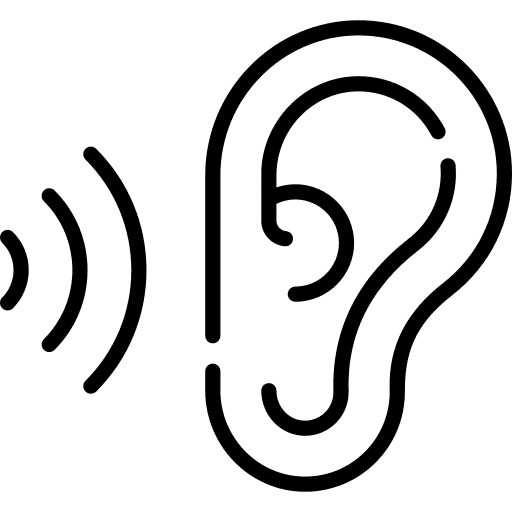
Hearing loss is one of the most prevalent health problems that airline pilots encounter. Exposure to continuous high levels of noise and ear barotrauma are the two main causes of hearing loss in pilots.
Ambient noise in the flightdeck of an A320 during flight is measured between 80-85db….To give context, 80db is equated to that of heavy traffic passing, or a vacuum cleaner.
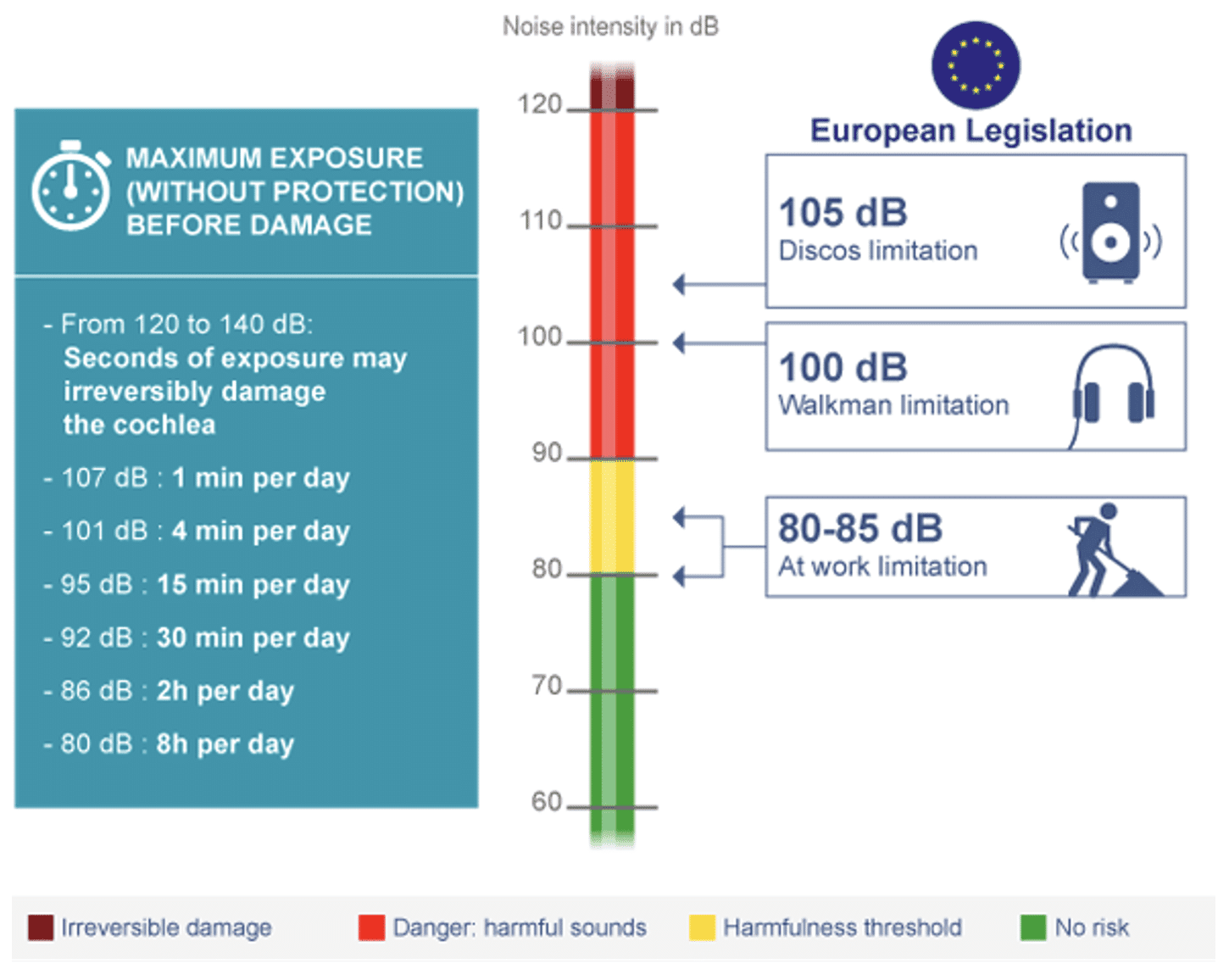
The EU states that anything over 80 dB for extended periods can cause permanent hearing loss, so airline pilots are sat right on that boundary every working day.
Whilst most pilots can wear noise-cancelling headsets, these aren’t usually provided by the airline and can cost around £1000/$1100 each. That’s a lot of money for a new first officer who’s already struggling to scrape together money to cover flight training repayment loans each month (& also a lot of money for older experienced Captains who tend to have multiple ex-wives to pay for!). It can also be uncomfortable to wear a chunky headset for the majority of your day, so even if pilots have invested in a noise-cancelling set, most pilots opt to remove headsets during the cruise for short-term comfort.
When headsets are off, ATC chatter through the loudspeakers has to be turned up louder than the background 85db ambient noise in order to hear the radio transmissions. What you essentially end up with is the equivalent of someone shouting at you over the noise of a vacuum cleaner. Unsurprisingly, studies have shown a very clear correlation between hearing loss & flight hours.
In spite of developing cabin technologies, barotrauma of the ear is another common issue faced by pilots. In a study with nearly 1000 Danish commercial pilots, more than one-third of the pilots (37.6%) reported having experienced one or more episodes of ear barotrauma during flight.
The worst cases of ear barotrauma can lead to a perforated eardrum. Let me tell you from first-hand experience, an ear drum perforation not a pleasant experience. An eardrum perforation can leave you with permanent hearing loss and if it doesn’t repair itself, you’ll have to either undergo serious surgery, or change the way you live your life as you’ll be unable to get the ear wet.
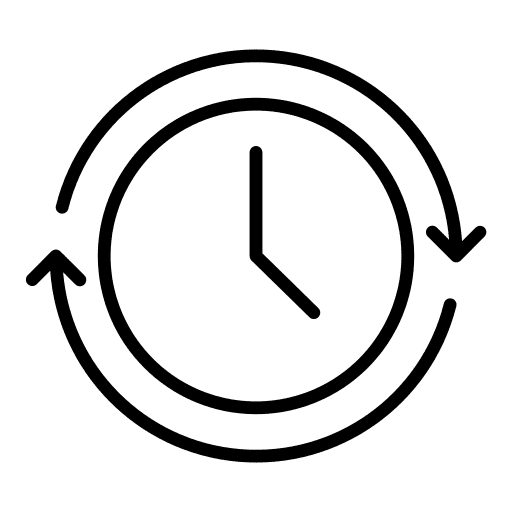
It’s quoted that the average working day for pilots is around 11 hours in length. In my experience, I’d agree with this. I’ve personally had many days going up to the 14/15 hour mark, but most often they sit around the 10-12 hour mark. For a short-haul airline pilot, these can be long, arduous days. There’s absolutely no way that your cognition 12 hours into a duty is comparable to that at the start.
Airline pilots have ‘Flight Time Limitations’ or FTL’s, set out by the regulatory bodies (CAA, EASA and the FAA) to restrict how many hours they can fly. Unfortunately, modern-day airlines tend to use these daily, weekly and monthly limits as targets to aim for in the interest of profit, as opposed to absolute maximums to steer well clear of in the interest of safety.
The daily limit varies depending on your start time & how many flights you do. I’ve included a table for reference. Note that these can be ‘extended’ by the airline to a less restrictive table a set number of times per month.
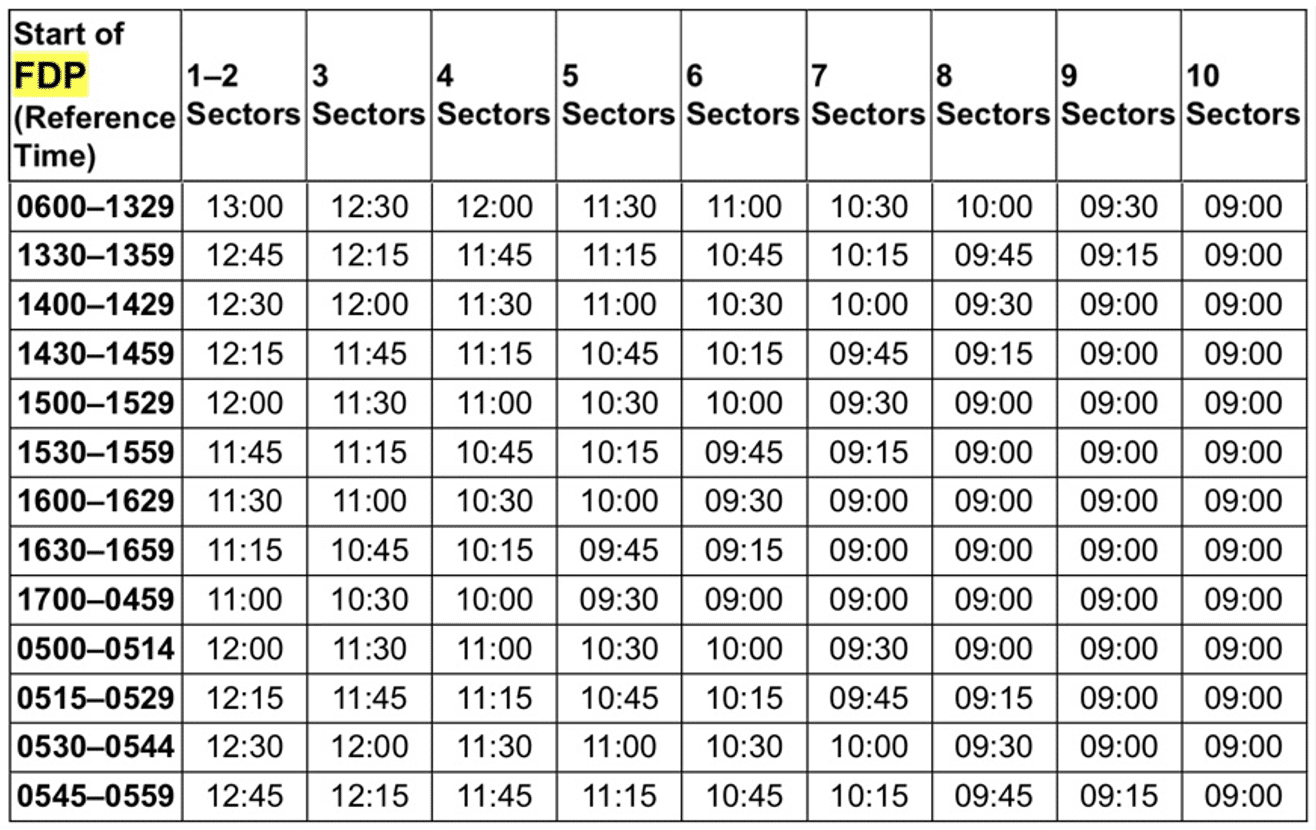
You can also use ‘discretion’ as a Commander to extend these table limits by up to 2 hours on the day of operation due to unforeseen delays. Unfortunately, there is a bit of a grey area around the term ‘unforeseen’. I can already foresee that there will be delays on the majority of my flights next Summer due to weather, capacity, slots, and airline issues. However, this doesn’t count as ‘foreseen’ according to the airlines and therefore isn’t a valid reason for a commander not to extend the limits in the above table. Whilst I do understand a lot is outside the airline’s control when it comes to delays, it shouldn’t be commonplace for pilots to use their discretion to work beyond the above limits. Unfortunately, the use of discretion in Summer to get the aircraft and your passengers home is becoming exactly that.
As an example from that table, you could check in at work at 06:00 am (usually means an alarm between 04:00 am and 04:30 am), take off at 07:00 am, and still be legally operating an aircraft at 21:00. 6 am to 9 pm would be ridiculous hours in an office job, especially if the office worker is essentially strapped to their office chair all day, only allowed to move when they need the toilet, so why is it ok in an industry where hundreds of lives are quite literally in the hands of the person pulling those hours?
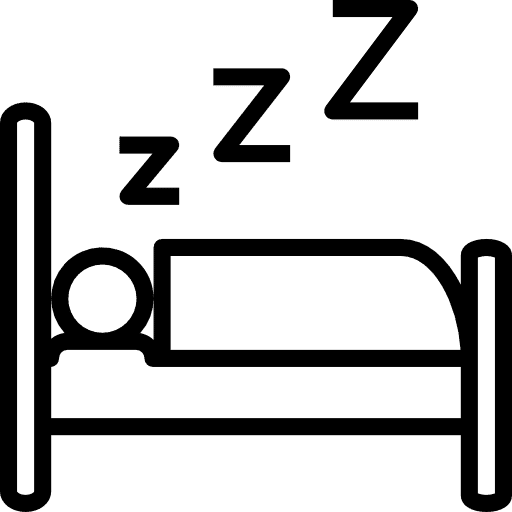
For airline pilots, it’s very hard to maintain good sleep hygiene and almost impossible to form a consistent sleep routine due to our rosters. We are essentially shift workers, but our alarm clock goes off at a different time every day. We could be on earlies, lates, or a mixture of both in the same week. Even if we’re on an early pattern all week, we’ll be starting and finishing work at different times each day, so our bed & wake times will have to reflect this.
Professor Russel Foster has shown in his extremely insightful book Life Time, and also his research papers that circadian rhythm disruption (essentially when our internal, innate sleep/wake clock is not in sync with when we are forcing ourselves to be awake or asleep) leads to copious adverse emotional problems such as mood swings, anxiety, empathy loss, increased impulsivity and risky behaviour, as well as cognitive impairments such as memory loss, reduced multitasking, concentration, decision-making, and motor skills.
This list seems like the complete opposite of what you’d want the person in control of a multimillion-pound aircraft, with hundreds of lives in their hands each day, to feel.
Studies also show that sleep loss leads to anger, frustration, irritability, sadness, and decreases positive emotions. It can be a catalyst for depression and raises the risk of developing mood disorders.
Circadian rhythm disruption is a vicious cycle. If your rhythm is disrupted, you’ll then find it harder to sleep, which causes further disruption. This can eventually lead to insomnia, which a staggering 70% of pilots studied here reported having. In another separate study as recent as 2021, 48.8% of the sampled pilots had insomnia, and 38.1% were found to have impaired sleep quality.
Circadian rhythm disruption has also been very strongly linked with increased health risks such as stress response alteration, cardiovascular disease, immunity decline, diabetes and cancer. There’s also evidence that it can disrupt innate and adaptive immune processes. The impact it has on your immune system leaves you more prone to illness, with this study showing that on average, pilots experienced one to two upper respiratory infections per year.
These consequences not only impact pilot well-being, but also pose a significant threat to aviation safety.
One of the world’s leading sleep scientists, Matthew Walker, emphasises the colossal impact sleep has on our lives. Some facts from his fascinating book Why We Sleep;
According to Walker, research suggests that insufficient sleep may be a key factor in the development of Alzheimer’s disease, arteriosclerosis, stroke, heart failure, depression, anxiety, suicide, and obesity. “The shorter you sleep,” he bluntly concludes, “the shorter your lifespan.”
Research into shift work specifically shows shift workers who work at night are 30% more likely to get injured than their day counterparts. This risk is increased by another 30% if you’re pulling 12-hour shifts as opposed to 8-hour shifts. The study also finds shift work to be very strongly linked to a range of physical health problems such as obesity, cardiovascular disease, peptic ulcers, gastrointestinal problems and failure to control blood-sugar levels. Airline pilots, unfortunately, tick most of the boxes above; shift workers often work during the night, and often on 12+ hour shifts.
These days, rosters are built using computer software that will produce the most efficient roster possible for the company. Whilst these computer systems have to account for legal limits on flight hours dictated by the governing aviation body, the rosters tend to be optimised more for short-term profit, rather than the long-term care of their employees. As mentioned previously, these legal limits are often treated like targets to aim for, so the rosters are extremely fatiguing.
Most airlines have ‘fatigue’ policies in place, whereby pilots can opt not to work if they feel fatigued to the level that they believe they pose a threat to the safety of the operation. However, in this 2016 study of over 7200 pilots, 50% believed that fatigue was not taken seriously, and only 17% felt their company cared about their well-being.
The CEO of Wizz Air, Jozef Varadi, recently urged his pilots to keep working even if they are fatigued. He told internal staff in this video “We are all fatigued, but sometimes it is required to go the extra mile. We cannot run this business when every fifth person in the base reports a sickness because the person is fatigued”. He noted the large impact on the company of a pilot going fatigued, notably having to cancel flights, and the airline having to pay huge amounts in compensation. This is a prime example of management very clearly putting direct pressure on pilots to fly fatiguing rosters.
I personally think that’s an absolutely disgusting comment for a CEO to make. If you can’t run the business because your employees are all fatigued, maybe you need to rethink your business model and redesign your rosters, rather than tell pilots they should be flying when they feel unsafe to do so? The rosters you’re making them work are not sustainable for human consumption. I genuinely believe Jozef Varadi is a threat to aviation safety, as are other similar individuals in positions of power who are happy to overlook basic care of their employees’ well-being in the name of short-term profit.
Delta Airlines Captain Karlene Petitt’s story is another quite shocking example of pilot management not just overlooking fatigue issues, but actively trying to silence any noise around this real threat to safety. In 2015, the Delta Airlines CEO publicly called for its employees to speak up if they’re aware of any safety issues within the company. Captain Petitt, an airline pilot of 35 years who was also currently working on her doctorate in aviation safety, created a report that highlighted some serious safety concerns, focusing on pilot fatigue within the company, along with some notable concerns around the company’s safety culture in general. She sent the report to her supervisors in the hope that action would be taken.
The action they took? They silenced her. Delta’s VP of flight operations sent an email indicating he wanted to end Petitt’s flying career. The company paid a substantial sum of money to a doctor with a close relationship to the airline to label Petitt as bipolar and unfit to fly, therefore having her class 1 medical taken away as well as her clearance to fly any sort of aircraft.
Thankfully, Karlene Petitt didn’t just roll over and take this (maybe as the board expected her to?). Petitt engaged a panel of 9 experts from the Mayo Clinic’s Aerospace Medical Department, who unanimously concluded that she didn’t have any psychiatric disorder at all.
After a drawn-out legal battle that spanned 6 years, Petitt was reinstated in her job. She was awarded $500,000 in compensation, along with the cost of all her legal fees covered. The doctor who’d been paid to label her as unfit to fly, voluntarily surrendered his medical licence.
This story absolutely blows my mind. Aside from the fact that Delta executives were happy to ruin a loyal employee’s entire life just for speaking up about a safety issue….the amount of money, time and effort wasted by the company in this legal battle could have gone into actually trying to sort the safety issues rather than just trying to silence someone who’s highlighted them. Again, it’s another example of short-sightedness from management and a total disregard for flight safety.
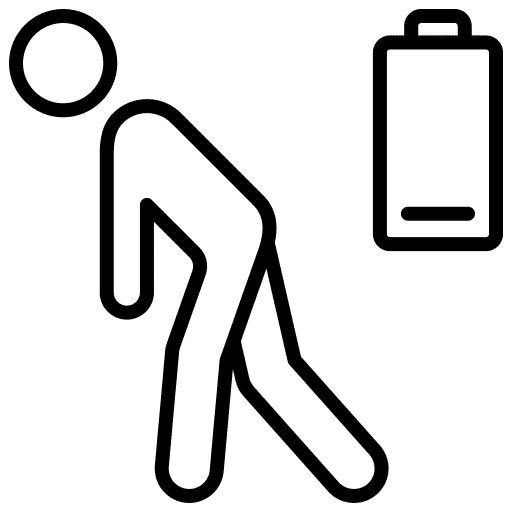
70% of airline pilots in a study conducted as recently as 2023 involving nearly 7000 pilots reported having insufficient rest to allow them to recover from fatigue in between duties. This indicates that there’s a very high number of pilots out there flying who aren’t sufficiently rested.
Insufficient pilot rest is a topic Captain Sully of the ‘Miracle on the Hudson‘ event has been very vocal about, commenting in an interview “The fact that we got so much so right so quickly under that sudden stress is a testament, not only to our training, but the fact that we had a chance to get sufficient rest. I’m convinced that had we been tired, had we not gotten sufficient rest the night before, we could not have performed at the same level… I may not have been able to perform as well”.
There’s a legal minimum for how much ‘rest’ you must get between shifts. In the UK, it’s known as ‘Minimum Rest’; 12 hours from the time you leave the airport at the end of a shift, to the time you need to be back at airport security to check in for your next duty (This can and will be reduced by the airline when operating out of base).
Whilst 12 hours may sound a lot, once you’ve allowed for the average commuting time of 1 hour each way, that leaves you 10 hours. If you want a restful 8-hour sleep in there, you have around an hour from walking through your front door to having to be asleep. Likewise, from the alarm going off the next morning, to needing to be on the road. That barely gives you enough time to take care of your basic needs, such as eating & essential hygiene, let alone tend to any relationships or life admin.
For the above reasons, it’s often hard to have the capacity for anything else on a working day, aside from work. Amongst other things, this leads to a ‘life admin build up’ as I like to call it, which we’ll come back to later on.
This insufficient rest time repeated for multiple days in a row can often lead to you not being able to get enough sleep. This lack of sleep builds up into ‘sleep debt’ and can be extremely dangerous. As well as having adverse short-term impacts on your emotions and damaging long-term effects on both physical & mental health, it’s claimed here that for every 45 minutes of sleep debt accrued, a person experiences a 5–10% decrease in mental control the following day. A big build-up of sleep debt can also lead to microsleeps; your eyes are open and you think you’re awake, but in fact you’re asleep for a few seconds at a time, and your brain isn’t processing the external world. Neither of which are what you want for an airline pilot!

Steven Bartlett (who’s interviewed the world’s leading phycologists & sleep scientists) in his latest book ‘A Diary Of A CEO’ stresses the importance of sleep in relation to both productivity and health;
‘ If you’re trying to perform better at work, a lack of sleep will lead you to be less productive. If you’re trying to lose weight or eat more healthily, sleep deprivation will decrease leptin the hormone that gives your body the signal that you are full. It also leads to a corresponding increase in ghrelin, known as the ‘hunger hormone’ which causes a surge in appetite and fat storage, which can lead you to making unhealthy food choices’.
This brings me nicely onto the next point;
For the majority of pilots, they’re fed on a diet that’s entirely decided by their airline. This is usually a cost-effective diet (in the short term anyway!), comprised of highly processed airline meals. Security measures mean pilots are extremely restricted on which pre-prepared food they can take on board. Once through security, food in airports is extremely expensive, so pilots are limited in the realistic food options available to them.
It’s also hard to maintain a regular eating pattern, the importance of which is stressed by top nutritionists. It’s hard partly due to the fact that pilots are waking, starting & finishing work at different times each day, but also because the flying schedule dictates when they can and can’t eat (trying to eat a meal during any part of the day aside from when you’re in the cruise is often not viable).

One tool pilots use to counteract the short-term effects of circadian rhythm disruption is caffeine. Unlimited coffee is one of the only freebies most pilots get these days. It’s commonplace in my airline for pilots to drink caffeine on tap throughout the working day, with many pilots openly reliant on this drug to remain alert.
Caffeine has a half-life of 5 – 6 hours, meaning if you have a coffee at 2 pm, you still have half that caffeine in your bloodstream come 7 pm, and a quarter at midnight. This blocks adenosine (a chemical in your brain which is needed to increase sleep desire) from binding to the adenosine receptors in your brain, as caffeine binds to those receptors instead.
An issue arises when pilots are drinking coffee later in the day or night to stay alert towards the end of a long duty day, and then find themselves unable to sleep when they get home. If the pilot is on minimum rest, meaning they essentially need to be able to fall asleep as soon as they get home from work in order to get sufficient sleep, this can be a real issue.
Mathew Walker also references this in his book, noting that once you do manage to fall asleep, caffeine can also decrease the amount of deep sleep that you have, which are stages three and four of non-REM sleep. And so, as a consequence, you wake up the next morning and you don’t feel as restored by your sleep. You don’t feel refreshed. (This means you’ll then reach for more coffee the next day: another vicious circle!)
One fascinating image from his book is the effect of caffeine on spiders. The following shows how caffeine significantly impacts the spider’s ability to create a ‘normal’ web. Food for thought.
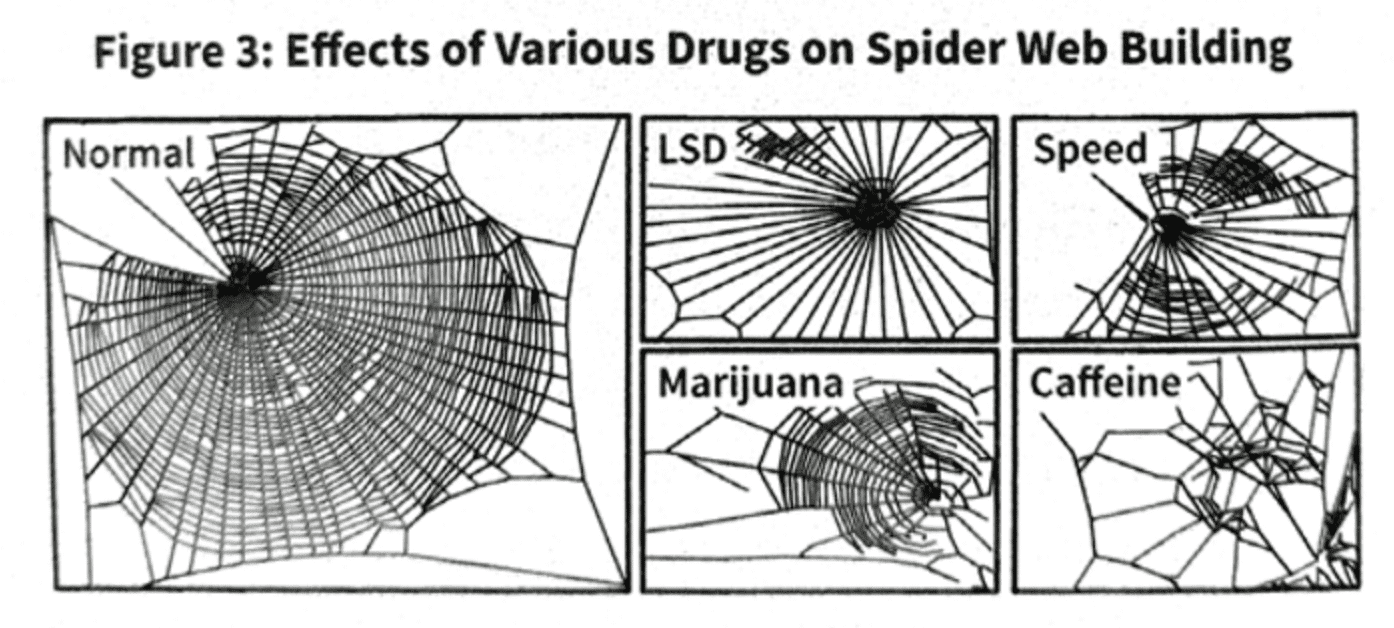

Everyone on Earth is exposed to a very low level of constant background galactic and solar cosmic radiation. At higher altitudes, the protective element of the Earth’s atmosphere is reduced (atmospheric shielding) and therefore pilots are exposed to higher levels of cosmic radiation.
The research here is few and far between, however, studies suggest that exposure to ionising radiation can lead to skin cancer and reproductive issues. The EU recognises that crew are exposed to potentially harmful levels of radiation and in the year 2000, they introduced limits to how much exposure crew can get. Again, as the research here is so limited, it’s hard to say where they pulled these figures from or how safe the limits are.
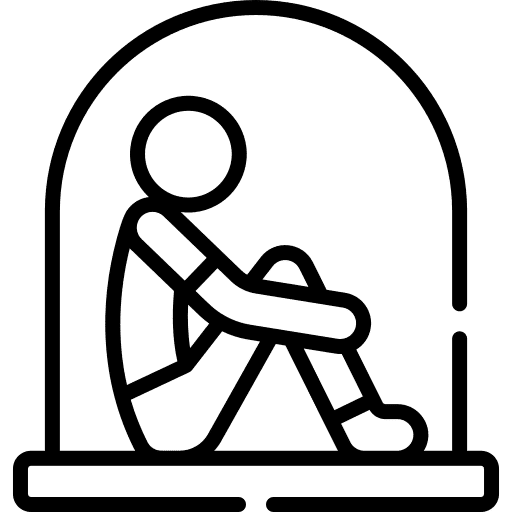
In a flight deck, you are extremely physically isolated. You’re locked behind a bulletproof door in a confined space, in a pressurised tube 38000ft in the air. You often share this space with just one other person for extended periods of time, allowed out only to go to the toilet or during a turnaround if you have a spare minute. Later, we’ll dive into how dependent humans are on social interaction, but for now, I just wanted to note this level of physical isolation both within the aircraft and essentially to the rest of the World. I don’t believe it’s healthy to be this physically isolated every day for such an extended period of time.
In this section, I’ve included factors that are predominantly psychologically based, although there is a lot of overlap in these factors with physical and social.

Autonomy is classed here as one of the 3 basic human psychological needs for well-being and happiness. In the superb book Lost Connections, Johanna Hari devotes an entire chapter to the impact that a lack of autonomy at work has on mental health. He discusses a study that linked greater incidences of depression and/or heart attacks in employees who lacked autonomy in their jobs. Many other studies have shown a similar pattern.
As a modern-day airline pilot, there is a lack of autonomy in the ‘doing’ of the job day to day, and also over your own life outside the job, both of which alone can trigger depression in humans, as this article explains.
Pilots are told by the airline which days they work, what times they start & finish, and where they’re flying to. The individuals often have absolutely no control over this. Their working times are totally dictated to them by their company. Once at work, they’re told what to wear and how they must wear it. Once on the aircraft, SOPs (Standard Operating Procedures) dictate exactly how things are to be done, which buttons are to be pressed and in which order. ATC then tell the pilots speeds, altitudes, and headings to fly. If anything goes wrong, there are set procedures to follow in a specific order.
Whilst lots of the above is necessary to make modern-day flying as safe and efficient as it has become, it means there is a complete lack of autonomy in the role of the modern-day airline pilot. When it comes to disruption, pilots often also have a further lack of autonomy; daily ATC slots are commonplace during the Summer, often leading to significant delays which the pilots have absolutely no control over. Delays eat into personal time, often up to multiple hours per day (and most companies don’t compensate pilots for it!). Pilots already plan their lives around work, and many report a feeling of loss of control over their own lives due to this combination of lack of autonomy over their working lives.
Being on standby is a good example. You could have a home standby that starts at 6 am, and up until mid-afternoon that day, you won’t be able to confirm to your family whether you’ll be home for dinner that night or even home at all (you could get called to stay abroad somewhere). Your phone can ring at any point within that timeframe, and you’ll have between 1-2 hours to be at work and on your way to wherever you’ve been told to fly to, for however long the company decide they need you to work that day. Whilst at the start of a pilot’s career, this may seem fun & exciting, it soon becomes evident that it makes for quite an unstable life.

Not only are the days long, but much of it is also extremely unstimulating work. With the high level of automation in airliners nowadays, you could have a 5-hour outbound flight, during which there really isn’t anything to do aside from fuel checks and listening to ATC, with the occasional track adjustment. You could then have the same on the way back. As pilots, we don’t have the luxury of being able to do what the passengers can to keep us stimulated (watch a movie, play a game etc). Whilst take-off and landing can be engaging, the majority of the flight can be extremely boring and unstimulating. This leads to an extremely low level of mental arousal, which leads to boredom and poor performance.
Below I’ve included the Yerkes – Dodson curve for reference. Airline pilots are rarely in the ‘Optimal Arousal’ stage. We spend most of our time in the cruise on the low arousal side, which induces fatigue and sleepiness (not ideal when the pilot is likely already under slept as discussed previously). When things do go wrong pilots are often blasted straight into the very high arousal area which induces lots of stress.
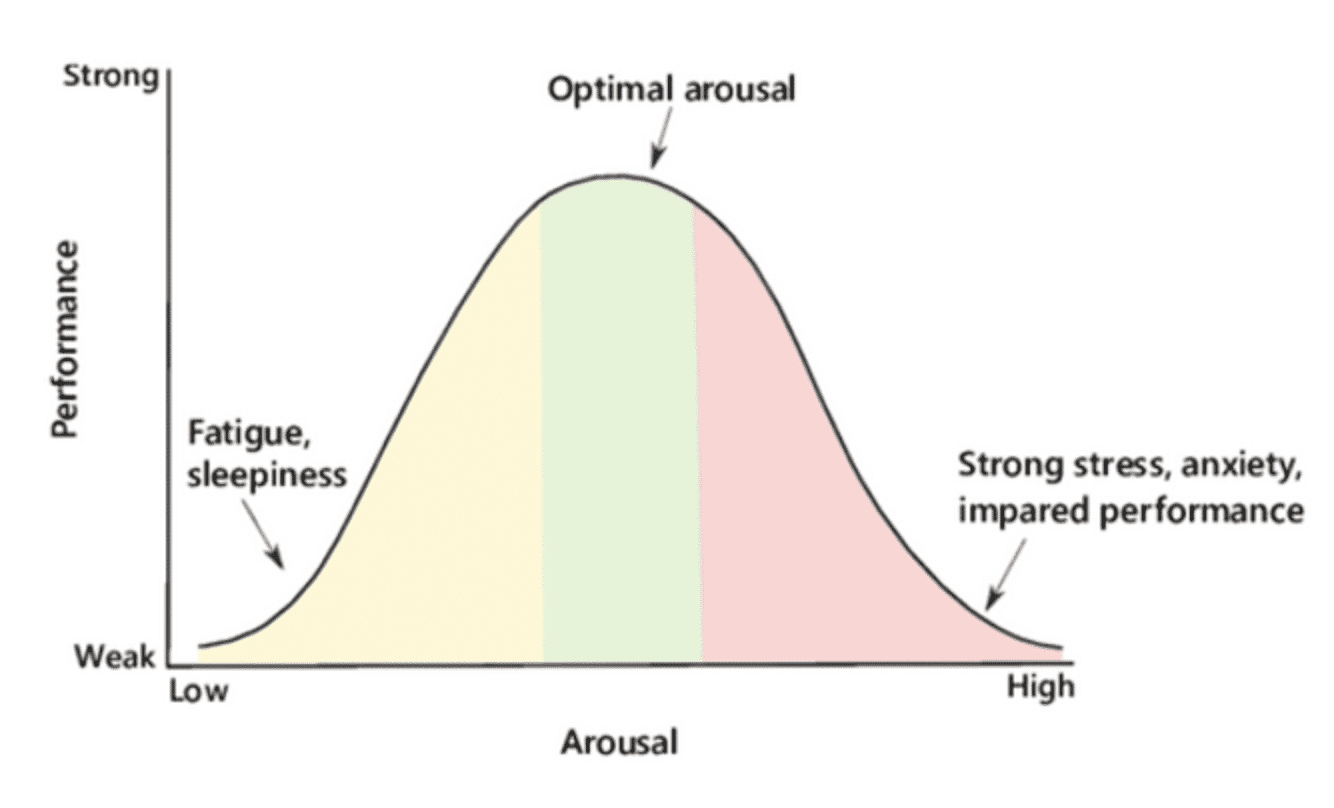

Being technologically ‘disconnected’ from the outside world in an era where smartphones and constant internet connection are the norm across most 1st world countries may sound like a minor thing, however, it definitely adds further stress to the job.
Whilst some may enjoy the thought of a day without their phone or without internet (I occasionally crave this!), being totally unavailable to be contacted anytime you’re at work can be a real struggle. Most people take it for granted that if their phone goes off at work, they can either answer it there and then, call the person back an hour later, or ping them a quick message. Most people are able to respond to anything urgent relatively quickly, be it a text, email, or call. As an airline pilot, if someone tries to contact you, you likely won’t see it until the very end of your long working day which could be up to 12 hours later, by which point you’ll be totally exhausted.
Having no internet access or phone signal for most of your 12-hour shift means it can be hard to tend to any relationship/family needs, and you’re extremely restricted in what else you can attend to.
‘Life admin’ tasks can really build up. As a short-haul airline pilot, the only time you may get phone signal, if you’re lucky (country dependent), is during a turnaround. These are probably the highest workload periods for pilots, and you’ll often be fortunate to find time to even think about your personal phone, let alone respond to anything.
Often when I turn my phone on at the end of a very long day, I’ll have a stream of messages, emails and missed phone calls, all of which need replying to. If you’re on minimum rest, you simply don’t have the time or capacity to respond to these if you want to get enough sleep to be well rested for the next day. A few days like this in a row and you have a huge backlog of admin things to get through, and people that feel like you don’t care about them as you haven’t replied to them, which in turn causes more stress for you along with adding further strain to your relationships.

There’s absolutely no doubt that being an airline pilot is a highly stressful job. Forbes recently ranked it No. 3 on its World’s Most Stressful Jobs list. Although there are lots of contributing factors to on-the-job stress, I think the main causes can be broken down into three groups:
We’ve already touched on how the physical environment of a flight deck can induce stress. The physical environment of airports themselves is definitely not conducive to good mental health, either. I believe they can be a cause of psychological stress, too. International airports don’t tend to be the most relaxing environments! Not only are large airports often huge manmade concrete structures (as far away from nature as you can get), they’re also hectic and busy environments at all hours of the day.
As crew, we still have to go through security, strip down and have all our belongings examined each day to prove we’re not trying to kill a few hundred people that day. We then have to battle our way through very large, busy airport halls with thousands of other people, all usually in a hurry. Once onboard, you’re often meeting five new crew members. Whilst an extroverted person may thrive in these situations, for a relative introvert like myself, I find it pretty stressful and draining having to battle through the above, to then meet an entirely new team every day (usually at around 5am), and start from scratch with each of them. I’d argue that the above isn’t a very relaxing or comfortable way for any worker to start their day.
During the workday itself, even when nothing goes wrong, there’s a relatively high level of underlying day-to-day background stress that comes with being in command of a multimillion-pound jet with 200+ people on board. It’s a huge level of responsibility. As well as trying to manage the aircraft, the crew and the 200 passengers, a standard day at a busy airport will also entail navigating delays and ATC slots whilst trying to simultaneously maintain the airline’s schedule, which is planned down to the second.
This background level of stress can be intermittently added to with bursts of extremely stressful situations, which you always have to be ready for. Medical emergencies, diversions, weather issues, and technical malfunctions. Many of these issues are things that can’t be foreseen, but require quick, accurate and decisive action in the moment for a safe outcome.
If any major issues do occur once you’re airborne, there’s often time/fuel pressure involved, which can push you straight to the right-hand side of the Yerkes-Dodson curve as discussed previously. An extreme example of this is the incident with Captain Sully on the Hudson (US Airways 1549). He suffered a sudden dual-engine failure over the middle of one of the most densely populated cities in the world at low altitude, just moments after takeoff. He had seconds to make a decision that would dictate the fate of everyone on board (& hundreds, if not thousands, on the ground).
The stress is heightened when you’re a Captain, as you are in charge, the buck stops with you. Any decisions you make could be critical. Get them wrong? The result could be anything from a prison sentence to a catastrophe that could lead to major loss of life.
Unfortunately, there appears to be an emerging contradiction between the expectation on pilots to make precise decisions in high-pressure, time-critical situations such as the above, and the simultaneous push for them to operate at their legal limits of capacity and sometimes beyond, as noted by the comments from Wizz Air’s CEO.
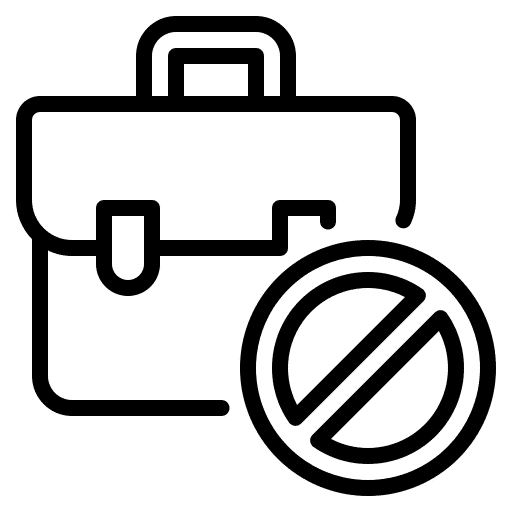
On top of the stress caused by the day-to-day operation, pilots commonly experience high levels of anxiety with regard to keeping their job. Not only is the airline industry notorious for companies going bankrupt or creating huge layoffs, but pilots are also faced with regular, stringent medical and flying performance examinations in order to continue with their profession.

All airline pilots are required to go through demanding simulator examinations every 6 months throughout their career in order to prove they are still proficient and to keep their licence. These exams consist of multiple days at a time in a large & very realistic simulator, having all sorts of emergencies and stressful situations thrown at you. You’ll be pushed to, and often past your limit to see how you cope. You’ll also be examined on your knowledge of the technical aspects of the aircraft. If you don’t perform in one of these, you won’t be allowed to fly until you’ve retrained and passed. Some pilots won’t be given that second chance.
On top of that, airline pilots face regular ‘line’ checks, where they fly a real passenger flight with an examiner in the flightdeck, checking that their day to day operation is up to the company standard. Again, these are pass or fail events. A fail would mean you’re not allowed to fly until further action is taken.
Whilst I totally understand the reasoning for the constant examinations of pilots ability, there’s no doubt it has an impact on the mental health of airline pilots and increases general stress levels. There really are not many other industries out there where you have to constantly ‘prove yourself’ under examination conditions multiple times per year in order to maintain your livelihood.

Along with the above, pilots go through rigorous medical checks each year (twice a year if you’re older). Fail one of these and your licence will immediately be suspended. You’ll be unable to work until the problem is rectified. If it’s something that cannot be rectified, it could very well be the end of your career.
Whilst the physical and psychological stressors I’ve mentioned so far would be understandable reasons for pilots to be mentally unwell, pilots are under heavy pressure to maintain the stance that they’re both mentally and physically ok, as if not, their career could get snatched from underneath them.
Evidence suggests that many pilots do not report pain or injury to their doctors or medical experts, and continue to fly because of fear of losing flight status and therefore their living. Almost 60% of nearly 4000 pilots studied here had actively avoided seeking proper healthcare due to fear of loss of their medical certificate.
This news is really shocking when we jump back to look at some high level stats of the real mental state of pilots;
40% pilots studied here experienced burnout at some stage in their career. Another study found 12.6% of the airline pilots studied met the depression threshold, and 4.1% reported having suicidal thoughts. They concluded that hundreds of pilots from their survey alone who are currently flying are also managing depressive symptoms, perhaps without the possibility of treatment, due to the fear of negative career impacts.
The FAA (US Aviation regulatory body) have a notoriously bad history when it comes to this. One pilot in this interview was on antidepressants for just 6 weeks and made a full recovery. It took them 3 years to get the paperwork through the FAA until they could return to flying. They also noted that insurance wouldn’t pay for their time off work, it was an FAA issue.
It’s yet another unfortunate vicious circle; Pilots don’t talk openly if they feel down or depressed. The fact they can’t go to their doctor about it without probably losing their job and the financial security that comes with it means the situation will often get worse.
Let’s jump back to the story from the introduction, where a US pilot had a mental breakdown in the cockpit and tried to turn off the engines mid-flight. The news claimed he had also taken magic mushrooms, however this was allegedly 2 days before the incident.
It has since come to light that the pilot was suffering from severe depression after the death of a close friend. Whilst his actions that day in the flightdeck were clearly wrong and I don’t wish to go into this specific incident any deeper, can you blame someone for trying to self-medicate or avoid going to a professional when they know the impact it will likely have on their entire life?

Whilst this one is aimed more at First Officers, it’s a very real stressor nonetheless. Pilots these days graduate flightschool with an average debt of around £100,000. When they then land their first job, quite often they could be earning more money stacking shelves in a supermarket. The first few years as an FO are usually spent in a very poor financial situation (low pay whilst also trying to meet large flying loan repayments) which adds to the dependency on the job, and therefore even more stress. This job dependency can stop pilots from calling in sick and fatigued due to fear of job loss, which is a safety concern in itself.

It’s not the sort of job where you can take 5 minutes out if you feel you need a breather. You spend most of your working life sitting in a tube, locked in a box at 38,000ft. Things getting too much during the day, or you feel you can’t focus? Not much you can do about it!
There’s no hour long lunch break to go and relax. There’s often no time in the day where you can find any form of solitude, even for a moment. There’s also no time your brain can completely switch off or zone out.
I personally feel this inability to find a few quiet minutes to myself leads to me feeling even more exhausted and drained at the end of each day. You’re constantly ‘on’, from the moment you walk into work to the moment you walk out.
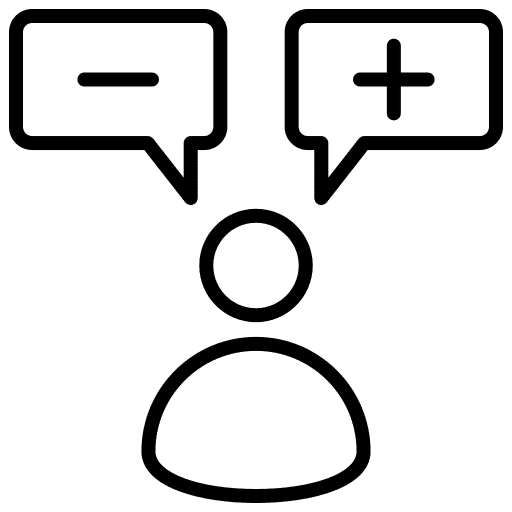
This is something I haven’t seen touched on in any studies yet, but something I feel extremely relevant to this article and I do think it has an impact on pilots lives outside of the job.
How many jobs are there where you begin the day by telling your colleague (also a stranger at this point) about the worst possible thing that could happen to you both that day, then ask to discuss it together in detail?
During training & throughout our careers, we’re told a ‘good’ pilot will always have the worst case scenario in mind, and have a plan for exactly what to do if the worst happens. We start each day with an emergency brief, running through what we’ll do if we have an engine failure or fire. We’ll also discuss any other airborne or ground-based threats that we foresee and how we’d go about mitigating or reacting to them.
In the cruise, we’re constantly keeping an eye on the nearest airports and weathers to make sure if something bad happens that we know where we’d be diverting to. That makes total sense, we’re primed for the worst possible thing to happen so we can react quickly when it does.
Whilst having this mindset at work is good for safety, it’s not a healthy mindset to bring into your personal life. It’s hard to leave that mindset at work when it’s been ingrained in you from years of flight school and every day on the line.
In my personal experience I’ve found this ‘always thinking worst case scenario’ mindset drifts into my personal life and relationships in a harmful way. It has at times lead me to become pessimistic, always preparing for what could go wrong, never just embracing what could go right.
Imagine if a pilot traded their morning emergency brief about all the threats and things that could go wrong that day, with a little speech about how optimistic they’re feeling about the day, the aircraft, and how they see the day running without a hitch. That would be absolutely unheard of in the airline world!
Whilst I’m certainly not insinuating pilots should do that, I do believe that constantly having to think negatively and about the worst case scenario does have a negative impact on mental health.
One read of Johann Hari’s Lost Connections and it becomes abundantly clear just how essential social connections and relationships are to human well-being. Due to the nature of the airline pilot role, these close connections can be extremely hard to build and maintain both inside & outside of work. This section focuses on how the job impacts an airline pilot from a social perspective.

Contrary to what the public believe, at most large airlines pilots rarely fly with anyone they’re familiar with.
I’ve flown from the same base for 8 years, yet I can count on one hand the number of times I’ve flown with the same pilot twice. Every single day, I meet five crewmembers for the first time. I spend a few hours locked in a box with one of them, then I will likely never come across them at work again. Whilst smaller airlines or bases may be different, this is the reality of working for a large airline at a big base.
Crew rooms used to be a meeting hub before work, offering the chance to bump into familiar faces who are operating other flights, and see any of the management at their desks. Now, in the name of cost saving & efficiency, these rooms no longer exist in our company (with many other companies following suit). Our crew now walk solo directly from the car park straight to the aircraft to meet each other on board. When the day is done, they walk straight from the plane to their car and drive home. You can quite literally go weeks or months at work without seeing a single face you recognise, let alone anyone you have any rapport with.
This huge lack of any familiarity or social connection at work, and the inability to forge any meaningful relationships at the one place you spend most of your time, can feel extremely lonely and isolating. It’s surely beyond doubt that this set-up is really not conducive to maintaining positive mental health for airline pilots.
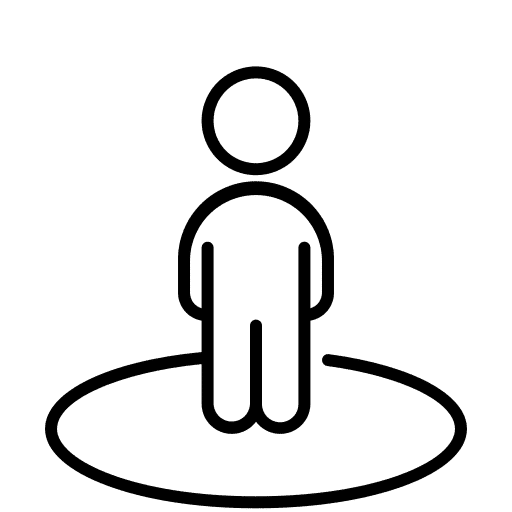
So as airline pilots we’re not getting the connection we need at work. How about outside of work?
Due to our long, antisocial working hours along with our unstable & unpredictable schedules, creating and maintaining strong social connections outside of work can also be extremely difficult.
Your days off tend to be when the rest of society is at work. You’ll work most weekends and when you do finally get one off you’ll likely be needing to use it recovering from the preceding working week or preparing for the next block of earlies.
You’ll often be unable to commit to any plans more than a month in advance, as you won’t have next month’s roster yet, so you won’t know your working days. In my company, the roster can come out as little as 2 weeks in advance. For those on a flexible roster (most FOs in my company), they literally won’t have any idea of which days or times they’ll have off work until this roster is released. This includes weekends. I still recall the sinking feeling as a First Officer when my roster would come out and I saw I was working across every weekend of the next month. I immediately knew the lack of social connection I’d have with anyone close to me that month.
The start/finish times on your roster can and often do change multiple times in the weeks and days leading up to each working day as you get swapped onto different flights by the airline. So even once you’ve ‘committed’ to a social plan, as it worked when your roster was released, you never actually know whether you can make it until you’re there! This makes it extremely hard to stick to social plans for essentially any working day, and often the days either side.
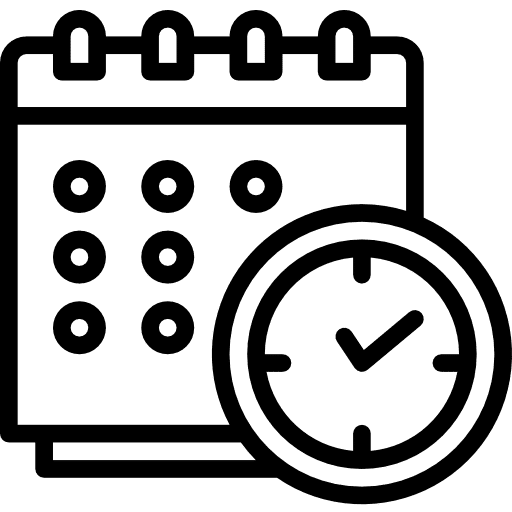
During the Summer, most flights will be delayed, so the finish time on your roster ends up being taken with a very large pinch of salt. Think about how frustrating it is as a passenger when you’re delayed by an hour or two & it throws the plans you have later that day? Imagine having this every single day of your working Summer.
As well as being at the mercy of delays, the airlines can actually change your flight upon report, meaning as you turn up to the airport to operate to once destination you’re then told you’re flying somewhere else and finishing X time later than planned.
I’m often hesitant to commit to anything too social on my first day off after a 5-day block, as I could well be working up to midnight that night and will very likely be totally exhausted the next day. Likewise, I’ve learnt it’s not best practice to commit to things the day before day 1 or work, as I’m often up at 4 am if I’m starting a block of earlies. When you only have 3 days off between blocks, this usually leaves you with one clear day to try and see to these connections (likely a weekday when anyone you’d like to spend time with is at work 😊).
In my personal experience some people in my life who aren’t in my line of work often couldn’t understand why I could never commit to their plans, or didn’t show up for their birthday party multiple years in a row. Do this long enough and you eventually stop getting invited. It’s extremely frustrating, but I believe it’s completely fair enough and understandable from their side.

Because of all the above, it’s also very hard to commit to joining any sports or social clubs, as you’ll never be able to attend on a regular basis. This compounds the issue with exercise we mentioned earlier, as sports clubs/teams are often a great way to get exercise whilst also building social connections, but most require at least partially consistent attendance. Unfortunately, that’s often just not possible with this career.
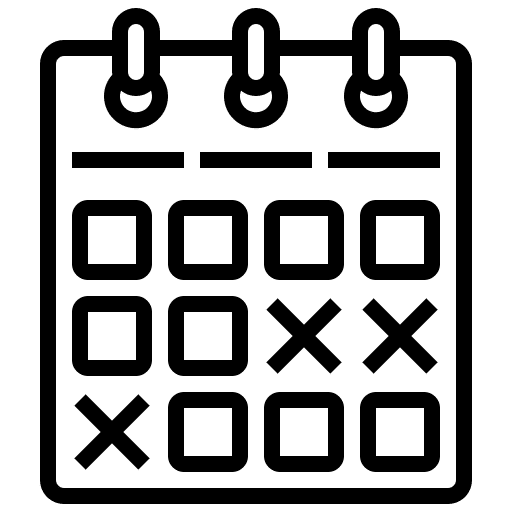
Tied in with the lack of autonomy over working life, is vacation days or leave. As an airline pilot, you’ll usually have to ‘bid’ for your holiday well over a year in advance. It won’t be guaranteed that you’ll get what you want. More often than not, you won’t.
Want a day off for something at shorter notice? There isn’t really such a thing as just requesting a day off…..If you can’t get it as leave, you aren’t getting it off. This can mean you end up missing important family/friends events (weddings, birthdays, etc), which can have a big knock-on effect on your feeling of autonomy and well-being, whilst also straining those relationships you need to keep close to you.
The above reality of the daily life of a pilot, mixed with the research on autonomy with work/life would definitely suggest that this inflexibility around holidays and days off can have a negative impact on pilot mental health.
I believe the research clearly shows that due to a mixture of physical factors of the job, such as the working environment (sedentary nature of job, pressurised cabin, noise fatigue, radiation exposure), sleep disruption, and poor nutrition, airline pilots are at huge risk of the following health problems as a direct result of their role;
These problems obviously have a very detrimental and direct impact on the physical health of pilots and can be a catalyst for mental health conditions.
The psychological factors highlighted including long working hours, insufficient rest, extended periods of low mental arousal, physical & social isolation & disconnection, on the job stressors, inability to take a break, constant fear of job loss/medical/sim checks, worst case mindset, and the inability to be honest and open about mental health can hugely increase the risk of pilots experiencing:
Social factors such as the lack of connection at work and inability to get connection needs met outside of work, along with the inability to participate in routine social activities and clubs, can lead to a feeling of social isolation. Issues with building routine & structure, lack of autonomy at work and over life/plans and inflexibility of holidays/taking days off can also impact pilots in the form of;
When you consider all the above information, it seems inevitable that the modern-day airline pilot will face a multitude of mental (& physical) health issues as a direct result of what the job role and working environment have evolved to become.
So why have I taken the time to put any of this together? Whilst the industry seems to be slowly waking up to the mental health wave, the current action taken to prevent mental health issues feels like merely putting a plaster over a broken leg.
Quite simply, something has to change with the direction the industry is heading in, or I believe we are going to be seeing more and more tragic events in global news to do with airline pilots (and therefore passengers) as a direct result of entirely preventable mental health issues. Airline companies are continuously seeking short-term profits over taking real care of their employees. Their top priority is keeping their shareholders happy. Unfortunately, when all their short-sighted competitors are doing the same, one company can’t afford to go against the grain. Quite simply, looking after your employees properly costs more money, which in the short term lowers profits. In today’s competitive market, this will increase the likelihood that the airline will go bust, as we’ve seen happen many times before. I believe that for change to be sustainable, it has to come from the top (government and aviation authorities) and be imposed on the airlines as regulations rather than recommendations.
Offering EAP (Employee Assistance Programmes) and occasional free counselling to pilots is a great start for some companies, but it doesn’t change many of the above causes of poor mental health. It’s still putting a plaster over the symptoms rather than making any fundamental changes to prevent it in the first place.
Below, I’ve included some potential solutions and ideas on how we can try to steer this ship just a few degrees in a different direction. I’ve grouped them into pilots, airlines, and government/regulatory bodies. Unfortunately, I don’t think the latter two will take any notice until something big goes bang.

Whilst the overarching responsibility for altering the course of the ship sits with the airlines and governing bodies, as pilots, we can take steps to make sure we’re looking after ourselves as best we can. I do have an article on 3 health hacks for pilots but to summarise those and add a few more:
Nutrition – I’d really recommend trying as much as you can to stay away from eating the processed airline food on a daily basis. Making healthy breakfast pots (overnight oats, or yoghurt & berries) can be quick and easy to prep and are a great way to gain a little more control over what you eat at work. If you’re looking for something even quicker, I’d also recommend Huel powder (no, they’re not sponsoring). It’s essentially healthy food all ground up, so you can keep it in your flight bag in a shaker and just add water when you want it. I use this most days. The best part, if you don’t end up using it one day, it’s still in your bag for the next day.
Sugar – Try to moderate sugar intake as much as you can. The last thing the body needs when it’s tired & sedentary is blood sugar spikes. Whilst it makes you feel on cloud 9 when the dopamine hits as you’re treating yourself to that sugary snack, you can experience a host of undesirable effects (fatigue, brain fog) after the glucose spike.
Caffeine – Again, use in moderation if required at all. I came off caffeine entirely 3 years ago, and it was one of the best decisions of my life. It’s helped my sleep no end, and actually improved my focus at work (after getting over the initial withdrawal stage). Dive into the research and bear in mind the 5-6 hour half-life of caffeine. Know that any caffeine after midday is likely to have some sort of detrimental impact on your sleep that night.
Exercise – We’re obviously extremely limited in what we can do in terms of physical movement whilst at work. To mitigate the negative impacts of being sedentary for too long, during longer flights, try to force yourself to stand every 45 minutes or so. It would obviously be a hindrance to the cabin crew if we were asking to be let out continuously, but at least get up from your seat to move around the flight deck a little. There’s plenty of research out there on the benefits of this.
Outside of work, try and do something physical every working day even if it’s just a walk around the block when you get home. Whilst a structured fitness routine would be ideal, we all know ‘structure’ and ‘routine’ are two words that aren’t synonymous with the job role. It’s so easy to go from bed, to car, to a 13-14 hour day at work, back to the car, then back to bed. Essentially you can spend 95% of your day sedentary. This is so inherently bad for our bodies and brains. Stretching before bed can also help work muscles you may not have used that day. Simple YouTube tutorials are great to follow here.
Social connections – Know how important it is to maintain these outside of work, especially when it’s not something you’re able to get whilst at work. Put the effort in. Be the one to organise things with others if necessary. Just make sure you’re keeping those connections alive.
Therapy – Whilst this isn’t for everyone, therapy can be a great tool for those in our industry. It can be a positive form of connection and also an outlet for all your thoughts and feelings that you may not feel you can share elsewhere. I appreciate it’s hard to schedule regularly with most airline rotas, but any good therapist will be accommodating of this.
Understand and use all the tools available to you at work – Airlines should all have a fatigue & sickness policy. If you’re sick or fatigued, that’s exactly what those policies are there for. Use them. Read and understand your airline’s people’s handbook, understand what the different reasons are that allow you to take days off (compassionate days, etc) or request changes to your roster. Crewing can and will change your schedule to work for them. Occasionally, this will mean breaking company/union agreements. Know your rights here. At the end of the day, NEVER fly fatigued. It’s simply not fair to your passengers.
Be authentic – If you’re not happy, speak up. If you’re feeling depressed because of work, there’s likely a good reason to share that. Whilst there are reasons, as discussed above, that you may not wish to share it with certain people, there are other people you most certainly should be able to share it with. Don’t hold it all in.
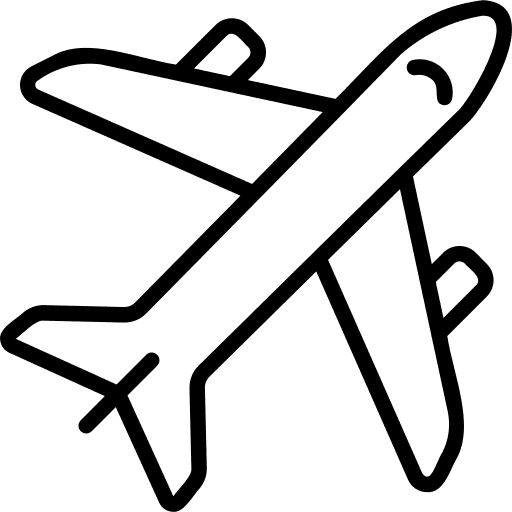
Airlines need to invest in their employees’ well-being. EasyJet’s CFO recently referred to their pilots as a ‘cost bucket to be minimised’ during a shareholder meeting. All the while that this is the attitude of airline management, pilots are not going to be viewed as assets or even human beings to be taken care of.
I believe incentives for the C-Suite must be changed. Unfortunately, the current system rewards those C-Suiters who can join a company, boost the short-term profits and therefore the valuation by squeezing every drop out of things in a highly unsustainable way, then they walk away with their extortionate cash bonus. This just isn’t sustainable. There needs to be rewards in place or incentives for higher-level management and the executives who look at the long term, not just a cash bonus based on the company’s profits or share price that year.
Greater flexibility with pilots working rosters and days off will be a good start. Investing in software that would allow crew to have more freedom over choosing and swapping flights etc. Whilst some airlines do offer this, it’s usually extremely basic and unreliable software. Many times in my own career, I’ve tried to use the outdated company software to try and swap a flight with another pilot, as it meant we could both attend plans that we otherwise couldn’t, only for the software to refuse the swap due to a technical error. Crewing phone departments are so overrun that they actively tell you they are not there to help you with any swap requests. It seems like such an inefficient system, and it can be extremely frustrating for the pilots whose lives are being dictated by this software.
Viewing maximum flight time limitations as limits to stay well clear of rather than to work towards would also be a step in the right direction.
Unfortunately, I can’t see any airlines taking it upon themselves to do any of the above without a directive from a higher authority.

In the medium to long term, aviation regulatory bodies should reconsider current regulations, ensuring they prioritise pilot well-being, ultimately upholding aviation safety over profit, as the research presented suggests the balance appears increasingly skewed in the opposite direction.
As to how they go about doing this, I’m not the person with the answers but I’d strongly suggest they start to look at the most up to date research on sleep, mental and physical health and how it’s linked to what we need as human beings.
This article may seem to paint the profession in an overwhelmingly negative light, however, it’s focus is on the negative mental health impacts of the role and there’s clearly a lot going on here. I want to stress that there are many positives to being an airline pilot, however these are slowly being eroded mainly in the name of profit, and also by the other areas I’ve discussed above.
If you have any questions about any of the above or wish to talk further, please feel free to get in touch at team@pilotbible.com
For those who wish to do more reading, here are some very impressive and insightful articles on similar topics from other pilots:
Pilots Who Ask Why – Why so many pilots hide their physical and mental health struggles
Cpt Paul Cullen – Pilot Wellbeing Lived Experience
This article was written by Sam Todman (a current Airline Captain in the UK) and published by PilotBible.
Enjoyed this post? Add your email below & we’ll notify you each time relevant posts go live

Learn how to become an airline pilot in 2026 with this updated guide. Training routes, costs, MPL vs ATPL, funding options, and airline advice.

When disaster strikes at 38,000 feet, split-second decisions save lives. Behind every pilot during an emergency lies hundreds of hours of rigorous training. How do airlines prepare flight crews to handle the unexpected? The answer reveals an intense world few passengers ever witness.
4 Responses
Hi, as an airline pilot myself and a safety advocate in aviation, I too subscribe to the importance of pilot’s mental health and wellbeing. Similarly, I also agreed to the challenges highlighted, especially the way pilots were treated and rostered for flights that have adverse effects on their wellbeing and detach them totally from the social live of what every normal human-beings would require. I would love to participate more in this discourse if opportunity arises. I am contactable at linkedin.com/in/jefferyang
Dear Aviator,
I am reaching 40 years of flying and reading this article was a delight. However as CRM dictates, you can stil perfect it by add the aerotoxic (neurotoxic oil leaked from the bleed air system into the cabin) risk and the high O3 (Ozone) level in the cabin. Exposure to ozone impacts sleep quality and health, potentially leading to various complications such as cardiovascular and liver diseases, diabetes, hypertension, anxiety, depression, and cognitive impairment.
Ref:
https://www.sciencedirect.com/science/article/abs/pii/S0013935122023520
https://www.sciencedirect.com/science/article/abs/pii/S2468125321001692
Ozone, a gas composed of three oxygen atoms, is a key component of the Earth’s atmosphere, existing in both the stratosphere and troposphere. While ozone in the stratosphere plays a vital role in protecting living organisms from harmful ultraviolet radiation. However, ozone poses significant risks to human health. Pilots, who embark on extended flights that span vast distances, are exposed to varying levels of ozone during their journeys. The impact of ozone exposure on these pilots is a topic of growing concern due to its potential implications for their health and performance.
Studies have shown that ozone exposure can lead to a range of health issues, particularly when it comes to respiratory and cardiovascular systems. Ground-level ozone is a known air pollutant that can cause inflammation in the lungs, exacerbating conditions such as asthma and chronic obstructive pulmonary disease (COPD). Additionally, ozone exposure has been linked to an increased risk of cardiovascular diseases, including heart attacks and strokes. Pilots, who spend extended periods in the air, are likely to be exposed to elevated levels of ozone compared to the general population, raising concerns about the long-term health effects of such exposures.
In addition to respiratory and cardiovascular concerns, ozone exposure has also been associated with other health complications. Studies have shown that ozone exposure can affect sleep quality, leading to disruptions in circadian rhythms and overall restlessness. Poor sleep quality can have a detrimental impact on cognitive function and overall performance, which is a significant concern for Pilots who must remain alert and attentive during long flights. Furthermore, long-term exposure to ozone has been linked to conditions such as diabetes, hypertension, anxiety, depression, and cognitive impairment, all of which can have serious implications for the health and well-being of pilots.
Regulatory measures and mitigation strategies are essential to address the potential risks associated with ozone exposure for Pilots. The regulatory bodies must establish guidelines and limits for ozone exposure in aircraft cabins to protect the health and safety of pilots and passengers. Additionally, the development of advanced air filtration systems and cabin pressurisation technologies can help reduce the concentration of ozone and other pollutants in the air, reducing the risks associated with long-haul flights.
You may use or reproduce all or any part of the text without having to mention anything. It is my contribution to a better world…
Alain.
Thanks for that extremely interesting addition to the article Alain! I’ll take a deeper dive into the research and look into incorporating it into the article 🙂
Wow Thanks for this article i find it hard to discover exceptional important info out there when it comes to this subject material thank for the thread website